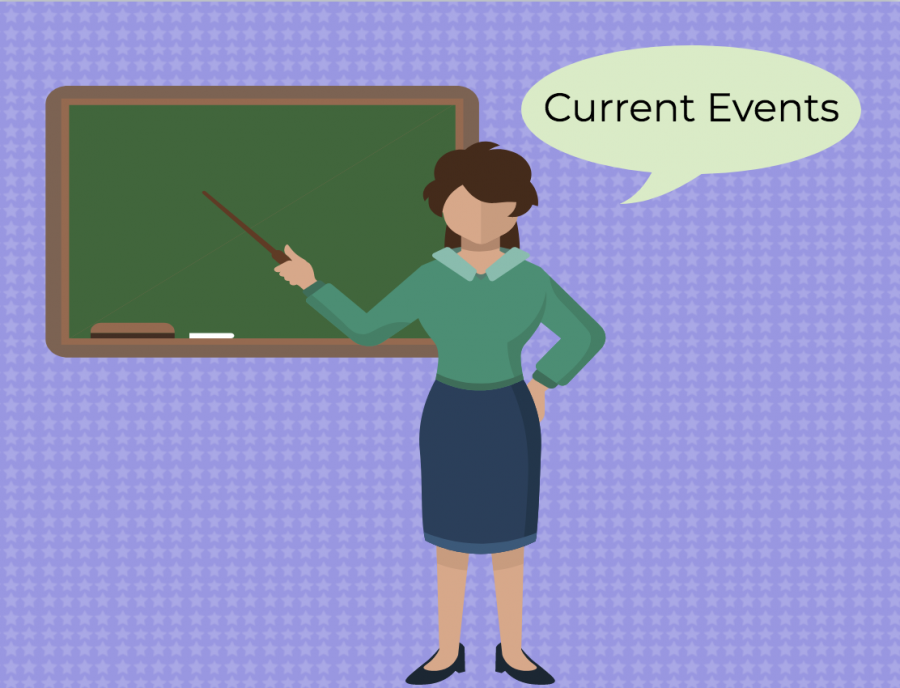It’s time to act on ‘never forget’: Install current events education into the MCPS curriculum
MCPS should strive to teach students about current human rights violations
March 4, 2021
“Never forget.” In school, we hear this message all the time, echoing through our history classes.
Never forget the inhumanity, the pain, the suffering, the blatant and inexplicable cruelty. Never forget how millions from around the world were discriminated against, tortured and murdered for no reason other than what they believed in, how they looked, or where they came from.
Sadly, we are forgetting. Our curriculum relegates genocide to history classes — we approach it as a thing of the past. But history is constantly repeating itself. Thousands of people around the world are currently experiencing the same atrocities that show up on our quizzes in the classroom, yet students receive minimal education about them.
We should be as firmly committed to not forgetting current genocides as we are about not forgetting past ones. MCPS must reform its curricula to ensure that students have a designated space to learn about human rights violations of both past and present. Such reform could help expose students to pressing and often devastating global issues, leading them to empathize with the suffering others around our planet experience and encouraging them to take action to benefit our world’s future.
In both Montgomery County and the public eye, Holocaust education is largely viewed as successful. In school, we read survivors’ memoirs such as “Night” by Elie Weisel and watch films based on true Holocaust stories such as “Life is Beautiful.” These materials give the tragedy a human face, helping students to understand the gravity of the crimes committed against other human beings just for being different.
The success of Holocaust awareness education can be replicated to teach students about current human rights violations and ensure that “never forget” applies to more than just past tragedies. Teachers should provide resources like videos and written accounts to ensure that students can connect and empathize with the victims of modern genocides.
In Myanmar, the Rohingya Muslim people are forced into internment camps where they lack food, utilities and medical care. Over 6,700 Rohingya have died as a result, including at least 730 children under the age of five. The Rohingya are far from being the only marginalized people who have undergone such atrocities.
In China, the Communist Party has detained between 1 million and 3 million Uyghur Muslims and placed them in “re-education centers,” where many undergo horrifying torture, including waterboarding and sexual abuse.
In Jammu and Kashmir, a region between India and Pakistan, the India government has issued a communications blockade and moved armed forces into the region to violently suppress civilians protesting the situation.
These examples are just a few of many. But despite the scope of these tragedies, it’s rare for recent human rights abuses to be taught in the classroom.
Some may object to the idea of teaching students about genocides in the classroom, arguing that such discussions are too intense or politicized for adolescents. However, if these sensitive topics are approached with care and consideration of students’ ages, teachers can modify conversations to be classroom appropriate and, most crucially, informative.
Instead of showing students excessively gory material or assigning blame to other countries, lessons should focus on the heart of the conflicts: who is being oppressed, and how students can get involved.
And yes, even though we’re just teenagers, we should be getting involved. In fact, for AP US Government teacher Katherine Young, the work of an educator is largely about empowering students to create real change.
“I view my job as a government teacher to teach students about the US government and how they can be a part of it,” Young said. “If I can give them the tools they need to connect with the government, I can equip them with what they need to impact change in issues that they feel passionately about.”
Students can raise funds to help people who are struggling, organize protests to compel the government to take action and relay their concerns to legislators. Having young people devotedly express their opinions of human rights violations can pressure politicians to take youth into account when drafting policy. Education is the force that can make this change occur.
Unfortunately, “never forget” fails to reflect our current attitudes. Too often, we forget too quickly. Change starts with informing students in the classroom by putting as much educational emphasis on present human rights violations as past ones. We cannot allow the events of today turn into another dark page in the history books; the time to act is now.











Muhammad Khan • Mar 6, 2021 at 11:47 am
A very thought provoking article by a school girl. She is reminding the world at large that we are teaching only selected atrocities that too of past. She very rightly pointed out that Children must be told about the on going Palestine specially Gaza, Kashmir, Burma and recent past like Bosnia, Rawanda etc.
There is definite need to focus on present for the coming generation
Khaled Shami • Oct 15, 2021 at 7:39 am
There’s the direct benefit of students becoming active and influencing their government, but there’s an an outsized benefit of these students growing up into truly educated adults who aware of their world and who are equipped to make better decisions about it in all their future actions.